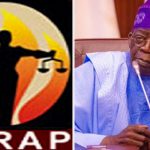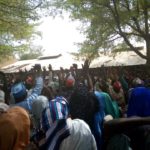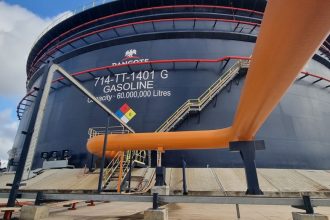Nigerians spent a total of N509.84 billion on electricity in the last quarter of 2024, reflecting an increase from the N466.69 billion spent in the third quarter, according to data from the Nigerian Electricity Regulatory Commission.
According to the Guardian, despite the improved revenue collection, electricity distribution companies still recorded a combined loss of N139.08 billion due to inefficiencies in billing and revenue collection.
NERC’s fourth-quarter report showed that the power sector billed customers a total of N658.40 billion, up from N626.02 billion in the previous quarter. However, collection efficiency improved slightly, rising from 74.55 percent in Q3 to 77.44 percent in Q4.
Meanwhile, Nigeria is still owed $8.84 million by the Republic of Benin and Togo for electricity supplied in Q4.
The report revealed that six international bilateral customers, supplied by Nigerian power generation companies collectively paid only $5.21 million out of the $14.05 million invoiced, representing a payment rate of 37.08 percent.
Eko DisCo recorded the highest collection efficiency, with 90 percent, having collected N96.58 billion out of N107.31 billion billed. Ikeja DisCo followed closely with 82.63 percent efficiency, collecting N101.92 billion from N123.35 billion billed. Benin, Enugu, and Port Harcourt DisCos also exceeded 75 percent efficiency, showing strong performance in revenue collection.
However, some DisCos continued to struggle. Jos DisCo had the lowest collection efficiency at 49.68 percent, collecting only N14.25 billion out of N28.67 billion billed.
Kaduna and Kano DisCos also performed poorly, with efficiency levels of 55.52 percent and 56.91 percent, respectively.
Despite these challenges, Yola DisCo recorded a notable improvement, increasing its collection efficiency from 49.31 percent in Q3 to 63.24 percent in Q4.
NERC reported that the aggregate technical, commercial, and collection loss for all DisCos stood at 35.22 percent in Q4, leading to a revenue loss of N139.08 billion.
Although this was an improvement from the 39.1 percent loss recorded in Q3, it still exceeded the Multi-Year Tariff Order target of 24.78 percent.
Kaduna DisCo recorded the worst ATC&C loss at 60.65 percent, far above its target of 25 percent.
The report also highlighted Nigeria’s ongoing metering deficit.
As of December 31, 2024, only 6.2 million customers, representing 46.57 percent of the country’s 13.5 million registered electricity consumers, had been metered.
During the period, a total of 185,439 meters were installed, marking a marginal 0.19 percent increase from Q3. Ikeja, Ibadan, and Benin DisCos led in meter installations, accounting for 28.81 percent, 20 percent, and 12.62 percent, respectively.
Most of the meters installed (96.56 percent) were under the Meter Asset Provider framework, while a smaller number were deployed under the Meter Acquisition Fund, Vendor Financed, and DisCo Financed frameworks. Ikeja DisCo led in MAP installations with 53,431 meters, followed by Ibadan with 37,089 and Benin with 23,397.
NERC also reported that domestic bilateral customers made a cumulative payment of N1.25 million against the N1.98 million invoiced for services rendered in the quarter, resulting in a 63.36 percent remittance performance.
Some international customers, including Paras-CEET, Paras-SBEE, and Transcorp-SBEE, made partial payments toward outstanding debts from previous quarters, totaling $2.98 million.
Despite efforts to improve revenue collection and efficiency, Nigeria’s power sector still struggles with energy losses, unpaid international debts, and slow metering deployment, underscoring the need for further reforms.










